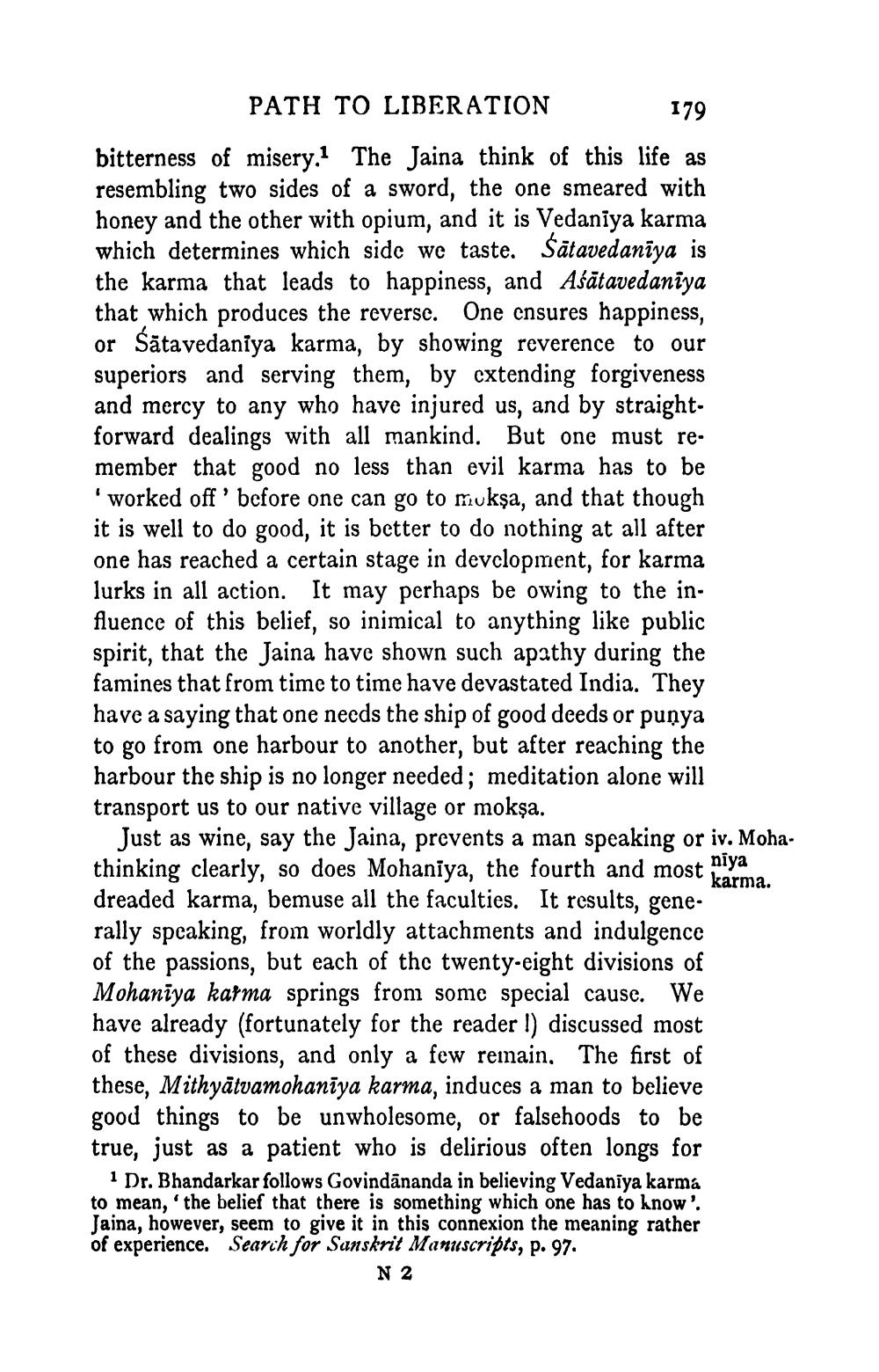________________
PATH TO LIBERATION
179
bitterness of misery.1 The Jaina think of this life as resembling two sides of a sword, the one smeared with honey and the other with opium, and it is Vedaniya karma which determines which side we taste. Šātavedaniya is the karma that leads to happiness, and Asātavedaniya that which produces the reverse. One ensures happiness, or Śātavedaniya karma, by showing reverence to our superiors and serving them, by extending forgiveness and mercy to any who have injured us, and by straightforward dealings with all mankind. But one must remember that good no less than evil karma has to be worked off' before one can go to mukşa, and that though it is well to do good, it is better to do nothing at all after one has reached a certain stage in development, for karma lurks in all action. It may perhaps be owing to the influence of this belief, so inimical to anything like public spirit, that the Jaina have shown such apathy during the famines that from time to time have devastated India. They have a saying that one needs the ship of good deeds or punya to go from one harbour to another, but after reaching the harbour the ship is no longer needed; meditation alone will transport us to our native village or mokşa.
niya
Just as wine, say the Jaina, prevents a man speaking or iv. Mohathinking clearly, so does Mohaniya, the fourth and most karma. dreaded karma, bemuse all the faculties. It results, generally speaking, from worldly attachments and indulgence of the passions, but each of the twenty-eight divisions of Mohaniya karma springs from some special cause. We have already (fortunately for the reader !) discussed most of these divisions, and only a few remain. The first of these, Mithyatvamohaniya karma, induces a man to believe good things to be unwholesome, or falsehoods to be true, just as a patient who is delirious often longs for
6
1 Dr. Bhandarkar follows Govindananda in believing Vedaniya karma to mean, the belief that there is something which one has to know'. Jaina, however, seem to give it in this connexion the meaning rather of experience. Search for Sanskrit Manuscripts, p. 97.
N 2




